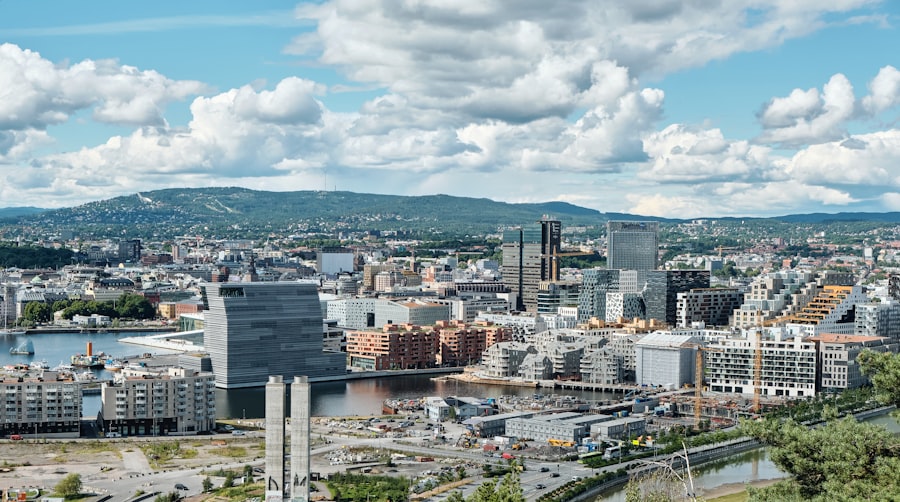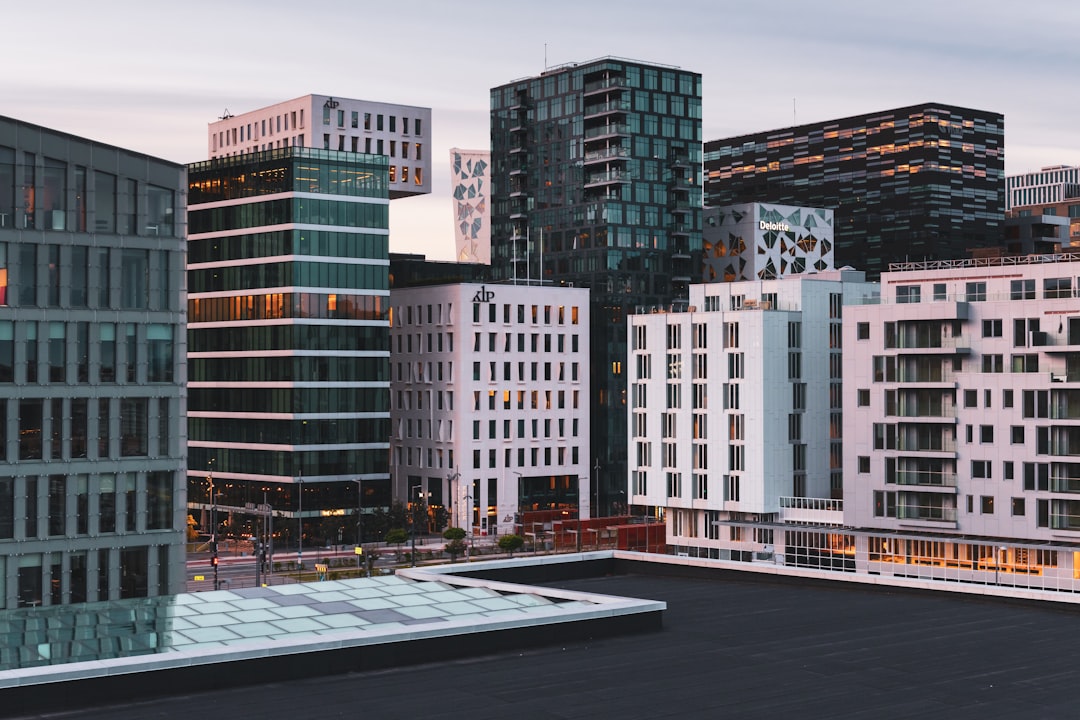The Norwegian healthcare system is renowned for its comprehensive and equitable approach to health services, ensuring that all residents have access to necessary medical care. Funded primarily through taxation, the system is designed to provide a high standard of care while promoting public health and well-being. Norway’s commitment to universal healthcare means that both citizens and residents, including expatriates, can benefit from a wide range of services without the burden of exorbitant costs.
This model not only prioritises health outcomes but also fosters a sense of community and shared responsibility for health. In recent years, Norway has made significant strides in improving healthcare delivery, focusing on efficiency and patient satisfaction. The system is characterised by a strong emphasis on primary care, with general practitioners serving as the first point of contact for patients.
This approach helps to streamline services and ensures that individuals receive appropriate care tailored to their needs. As an expat in Norway, understanding the intricacies of this system is essential for navigating healthcare services effectively and ensuring that you receive the best possible care. Take the first step. Book a consultation with the Norway Relocation Group for your move to Norway. https://norwayrelocation.no/one-hour-strategy-session/
Summary
- The Norwegian healthcare system is based on the principles of universal access and equal treatment for all residents.
- To access healthcare services in Norway, individuals must be registered in the National Population Register and have a Norwegian identification number.
- Primary care services in Norway are provided by general practitioners (GPs) and include preventive care, diagnosis, treatment, and follow-up for common health issues.
- Specialist care in Norway requires a referral from a GP, and services are provided at hospitals and specialist clinics.
- Prescription medication in Norway is dispensed at pharmacies, and individuals may be required to pay a small user fee for each prescription.
Eligibility and Registration for Healthcare Services
To access healthcare services in Norway, it is crucial to understand the eligibility criteria and registration process. All residents, including expatriates who have lived in Norway for more than three months, are entitled to register with the National Population Register. This registration is vital as it grants access to the public healthcare system.
Once registered, individuals are assigned a unique identification number, which is essential for accessing various health services. For expatriates, the process may vary slightly depending on their residency status. Those who hold a valid work permit or are studying in Norway typically qualify for the same healthcare benefits as Norwegian citizens.
It is advisable for expats to register with their local municipality and obtain a health card, which will facilitate access to medical services. Understanding these steps is crucial for ensuring that you can navigate the healthcare landscape without unnecessary complications.
Primary Care Services in Norway

Primary care in Norway is primarily delivered through general practitioners (GPs), who play a pivotal role in the healthcare system. GPs are responsible for providing comprehensive medical care, including preventive services, diagnosis, and treatment of common illnesses. They also serve as gatekeepers to specialist services, ensuring that patients receive appropriate referrals when necessary.
This model not only promotes continuity of care but also fosters a strong doctor-patient relationship, which is essential for effective treatment. In addition to GPs, Norway offers a range of primary care services, including nursing homes, physiotherapy, and mental health support. These services are designed to address various health needs within the community and are often accessible without long waiting times.
For expats, establishing a relationship with a local GP can be particularly beneficial, as they can provide guidance on navigating the healthcare system and accessing additional services as needed.
Specialist Care and Referrals
When a patient’s condition requires specialised attention, referrals from a GP are typically necessary to access specialist care in Norway. This referral system is designed to ensure that patients receive appropriate treatment while managing resources effectively within the healthcare system. Specialists cover a wide range of fields, including cardiology, orthopaedics, and dermatology, among others.
Once referred, patients can expect to receive timely appointments, although waiting times may vary depending on the urgency of the case and the specific specialty. The referral process is generally straightforward; however, it is essential for patients to communicate openly with their GPs about their symptoms and concerns. This transparency allows GPs to make informed decisions regarding referrals and ensures that patients receive the most suitable care for their needs.
For expatriates unfamiliar with the system, understanding this process can alleviate anxiety and help them feel more confident in seeking specialised medical attention when required.
Prescription Medication and Pharmacies
In Norway, prescription medications are dispensed through pharmacies, which are widely available throughout the country. To obtain prescription medication, patients must first consult with their GP or specialist, who will issue a prescription if deemed necessary. The cost of medications can vary significantly depending on whether they are subsidised by the government or not.
Generally, essential medications are covered under the national insurance scheme, making them more affordable for residents. Pharmacies in Norway are well-regulated and staffed by qualified pharmacists who can provide valuable advice on medication usage and potential side effects. For expatriates, it is important to be aware of the differences in medication availability compared to their home countries.
Some medications that may be readily available elsewhere might require special approval or may not be available at all in Norway. Therefore, maintaining open communication with healthcare providers about medication needs is crucial for ensuring continuity of care.
Emergency and Urgent Care in Norway

In cases of medical emergencies or urgent health issues, Norway has a well-structured emergency care system in place. The emergency number in Norway is 113, which can be dialled for immediate assistance in life-threatening situations. Emergency rooms (akuttmottak) are available at hospitals across the country and are equipped to handle a wide range of medical emergencies.
It is important to note that emergency services are primarily intended for urgent cases; non-urgent matters should be directed to primary care providers. For expatriates unfamiliar with the system, understanding when to seek emergency care versus primary care can be challenging. In general, if a situation poses an immediate risk to life or requires urgent intervention, it is advisable to seek emergency assistance.
However, for less critical issues such as minor injuries or illnesses, visiting a GP or local clinic is often more appropriate. Familiarising oneself with local healthcare facilities can help expats feel more prepared in case of emergencies.
Dental Care and Services
Dental care in Norway is primarily provided through private practices rather than being included in the public healthcare system. While basic dental services are available through public health initiatives for children and adolescents up to 18 years old, adults typically need to pay out-of-pocket for dental treatments. This includes routine check-ups, cleanings, fillings, and more complex procedures such as root canals or orthodontics.
For expatriates living in Norway, it is essential to budget for dental care as it can be relatively expensive compared to other healthcare services. Many dental practices offer payment plans or financing options to help manage costs. Additionally, it is advisable for expats to seek recommendations from locals or fellow expatriates when choosing a dental provider to ensure they receive quality care.
Maternity and Child Health Services
Norway places a strong emphasis on maternal and child health services, providing comprehensive support throughout pregnancy and early childhood. Expectant mothers are encouraged to attend regular check-ups with their GP or midwife, who will monitor both maternal and fetal health throughout pregnancy. The Norwegian healthcare system offers extensive prenatal education programmes aimed at preparing parents for childbirth and parenting.
After childbirth, mothers can access postnatal care services that include follow-up appointments and support for breastfeeding and infant care. Child health clinics (helsehus) are also available for regular check-ups and vaccinations for children up to five years old. These clinics play a vital role in monitoring child development and providing parents with guidance on health-related issues.
For expatriate families, understanding these services can help ensure a smooth transition into parenthood while living in Norway.
Mental Health Support and Services
Mental health support is an integral part of the Norwegian healthcare system, reflecting a growing recognition of the importance of mental well-being alongside physical health. Various services are available for individuals experiencing mental health challenges, including counselling, therapy, and psychiatric support. General practitioners often serve as the first point of contact for mental health concerns and can provide referrals to specialised services when necessary.
For expatriates facing mental health issues—whether due to cultural adjustment or personal challenges—accessing support can be crucial for overall well-being. Many municipalities offer mental health resources tailored specifically for newcomers, including support groups and counselling services in English. It is essential for expats to prioritise their mental health and seek help when needed, as doing so can significantly enhance their overall experience living in Norway.
Health Insurance and Costs for Expats
While Norway’s public healthcare system provides extensive coverage for residents, expatriates should be aware of their health insurance options and potential costs associated with medical care. For those who qualify under the national insurance scheme, most healthcare services will be covered; however, there may still be some out-of-pocket expenses for certain treatments or medications. Expats who do not qualify for public insurance may need to consider private health insurance plans that offer coverage tailored to their needs.
These plans can vary significantly in terms of coverage options and costs; therefore, it is advisable to research thoroughly before making a decision. Understanding your insurance coverage will help you navigate the healthcare system more effectively and avoid unexpected expenses.
Tips for Navigating the Norwegian Healthcare System as an Expat
Navigating the Norwegian healthcare system as an expatriate can initially seem daunting; however, there are several strategies that can facilitate this process. Firstly, establishing a relationship with a local GP early on can provide invaluable support when accessing medical services or navigating referrals to specialists. It is also beneficial to familiarise yourself with local pharmacies and their operating hours so that you know where to go when you need medication.
Additionally, learning some basic Norwegian phrases related to healthcare can enhance communication with medical professionals and make appointments less stressful. Many healthcare providers speak English; however, being able to express your needs in Norwegian can foster better understanding and rapport. Lastly, consider enrolling in Norwegian language courses at institutions like the NLS Norwegian Language School in Oslo.
These courses not only improve your language skills but also provide insights into Norwegian culture and society—an invaluable asset when integrating into your new environment. By taking proactive steps to understand both the language and healthcare system, you will be better equipped to navigate your health needs while living in Norway successfully.
Learn more about the Norwegian classes at the NLS Norwegian Language School in Oslo

